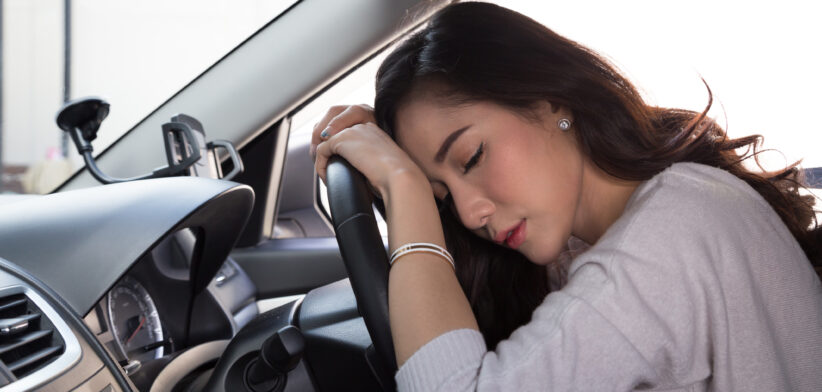New earbud devices have been developed that will detect if the wearer is becoming dangerously sleepy.
Engineers at the University of California, Berkeley say the device could help prevent injury and death for people who are driving or using heavy machinery.
The earbuds use an electroencephalogram (EEG), a test that doctors use to measure electrical activity in the brain.
“While most EEGs detect brain waves using a series of electrodes attached to the head, the earbuds do so using built-in electrodes that are designed to make contact with the ear canal,” the research report said.
“(The new) EEG platform is sensitive enough to detect alpha waves, a pattern of brain activity that increases when you close your eyes or start to fall asleep.”
The researchers said the technology had many potential uses, including detecting drowsiness, and classifying and diagnosing sleep disorders.
“My personal goal was to try to make a device that could be used every day by someone who would really benefit from it,” Ryan Kaveh, a UC Berkeley postdoctoral scholar and co-first author of the study said. “In order to do that, I knew that it would have to be reusable, fit a variety of people, and (be) easy to manufacture.”
In an earlier study, the researchers showed that earpieces could detect a number of physiological signals, including eye blinks, alpha brain waves and the auditory steady-state responses.
As part of the experiment, they asked nine volunteers to wear the earpieces while they did boring tasks in a darkened room. The volunteers were asked to rate their level of drowsiness, and their response times were measured.
“We found that even when the signal quality from the earpieces seemed worse, we could still classify the onset of drowsiness with the same level of accuracy as much more complicated, bulky systems,” Mr Kaveh said.
“The earpieces also retain their accuracy when categorizing drowsiness in brand-new users, a characteristic of devices that could work ‘out of the box’.”
The full report is on the UCB website.








